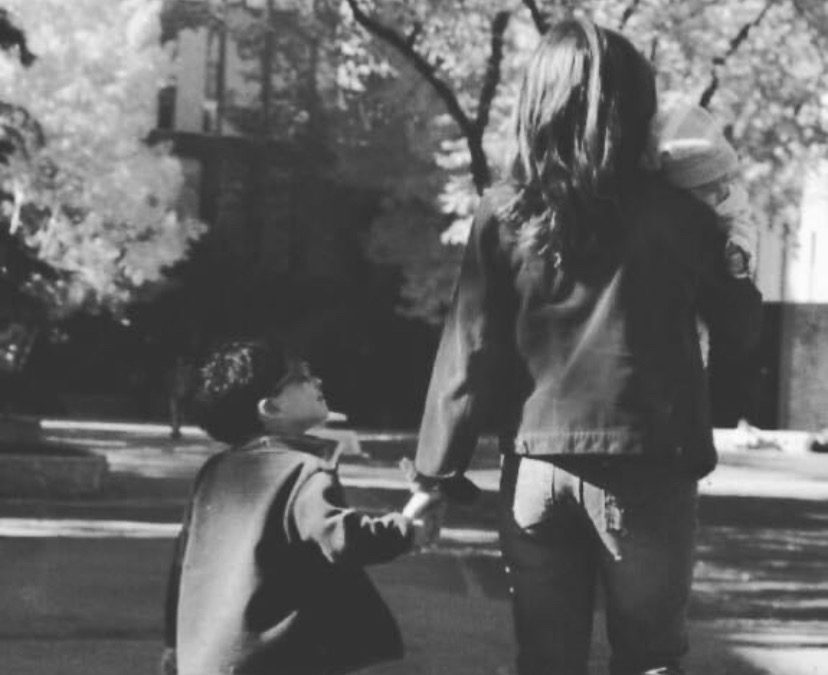I have been thinking a lot about my role as a woman, as a wife, and most importantly, as a mother. Oftentimes I wonder if I am placing an unreasonable amount of pressure on myself to ensure that everything I do and say is perfect or just right. Then I begin to think about the word perfect. If I have failed in this perfection, is this a reflection of who I truly am? If I fail as a wife or if I fail as a mother, are these all reflections of who I am to my loved ones?
I grew up in a Baha’i household where I was encouraged to live a noble, kind and thoughtful life. I was reminded every day to be humble and that hardships are to prepare us for the next world; that I should not be dependent or content with fleeting moments to bring me happiness; that there is a significant, critically important difference between material and spiritual happiness.
I am the oldest of 3 and my mother gave each of us her wisdom, her courtesy, as well as her discernment and judgments–whether we asked for it or not. Being the oldest, I witnessed my parents lives be uprooted several times. As a result, I took it upon myself to be the obedient one, not to add to their already full plates.
As I grew into my role as a wife and more importantly as a mother, I began to really think about myself as a person. Have I provided both my children, one of which is an adult now the same strong foundation that my mother gave me? I learned from the Baha’i writings, For mothers are the first educators, the first mentors; and truly it is the mothers who [determine] the happiness, the future greatness, the courteous ways and learning and judgment, the understanding and the faith of their little ones. In reading and pondering on this quote, how can I not feel the immense sense of responsibility and duty as a person never mind a mother?
Universal education is a principle of the Baha’i faith, and Baha’is believe that the education of women is essential for humanity’s progress. As I still witness the injustice shown towards women today, I try my best to focus on the progress made over the past centuries in terms of bringing about equality and opportunities for young girls and women. In a talk in Paris, Abdu’l- Baha said:
If the mother is educated then her children will be taught. When the mother is wise, then will the children be led into the path of wisdom.
With that, I often wonder how many of us mothers focus on more than the acquisition of degrees and titles? How many of us encourage our children to analyze, to be skeptical, to question, and to come to our own conclusions? How many of us teach our children to think, rather than to feel their way through life? How many of us model for our children how to take each day and reflect on ourselves and our behaviors?
This is perhaps why I chose to become an educator: a chance to redo what I hadn’t thought about when I first become a mother. Learning from my mistakes, reflecting on what is most important to provide my children with. I feel it is so important for women today to see each other as each other’s guardians, supportive groups, to empower each other, to be active listeners, manifesting the virtues and the capacity that we are all born with.
No, it’s not easy to be a woman, and quite frankly, it never has been. Our society poses too many expectations of women; some unrealistic, some unreasonable, and most often demanding. But one thing that gives me hope is that the equality of women and men is critical for the development of children. Abdu’l-Baha said that, Divine Justice demands that the rights of both sexes should be equally respected since neither is superior to the other in the eyes of Heaven. Dignity before God depends not on the sex but on purity and luminosity of heart. Human virtues [belong] equally to all.
As I continue to embark on this journey of being an educator, my goal now is to support other mothers by sharing the spiritual lessons of kindness, generosity, and justice I learned from my mother. By being an educator of children, I take this duty to heart. Baha’u’llah wrote: Let deeds, not words, be your adorning, and mothers demonstrate their love for their children through both material and spiritual actions. As I morph into an older version of myself, it is my hope to remind my children of their virtuous skill sets. Not only to help them become successful in life but to uplift those around them. I cannot help but reflect on this quote, the future generation depends on the mothers of today. This statement reflects the confidence my mother had that she’d done the best job she could to train my sisters and me to become functional adults.
What I have learned and am still learning as a mother, as a co-parent, and as an educator— is to continue to practice and refine my spiritual qualities, and to provide children with the time to nurture their traits. By doing this, my life contributes to the peace and security of future generations.


Recent Comments